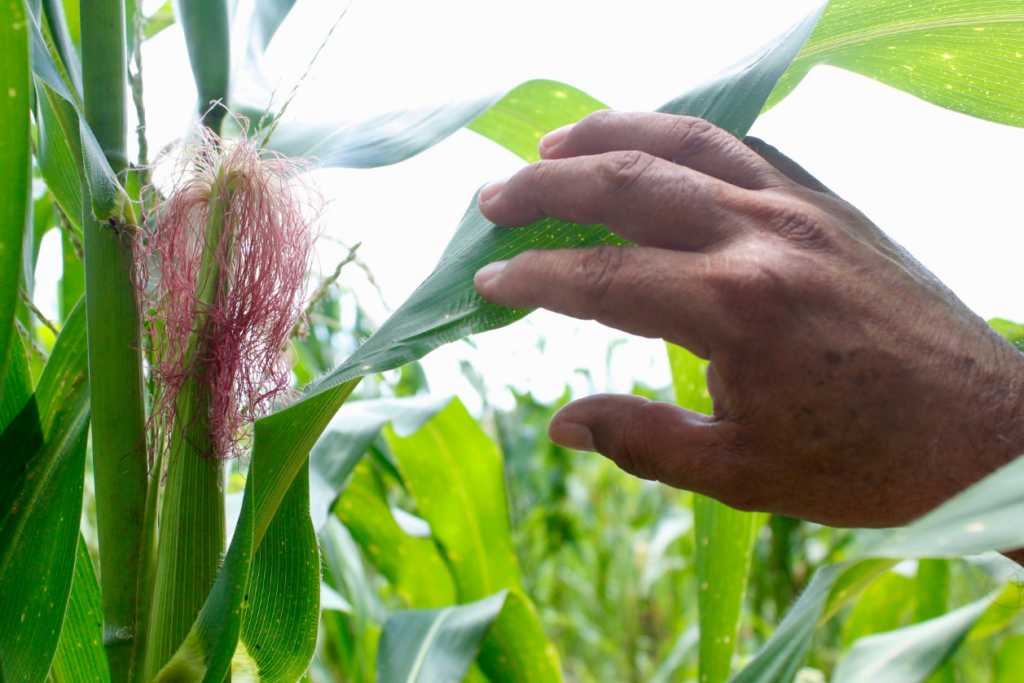Milpa is a millennia-old agricultural polycrop system from Mesoamerica that continues to be widely used in México. Milpa includes maize, beans, and squash, often mixed with other crops. This agroecological system has many sustainable properties, including the ability to support large crop yields without requiring pesticides or fertilizers, even in nutrient poor soil. Lineage holders of this ancient biocultural heritage have maintained ecological wisdom that contemporary scientific inquiry is now beginning to understand in a more mechanistic approach. Two-ways exchanges between science and traditional ecological knowledge are ripe for new and beneficial discoveries. In the case of Milpa, practitioners have long understood the causal relationships between their actions and the sustainable results of their harvest. Now, science is guided by Indigenous expertise to investigate how the agroecological benefits are achieved, with the broader goal of informing solutions for food security, a major 21st century challenge. The contemplative practices associated to Milpa are not recognized as being essential or central to how Milpa is understood by practitioners. In my research, I argue that the contemplative practices are not arbitrary or purely faith-based, but help to structure the causal reasoning involved in producing sustainable food.




